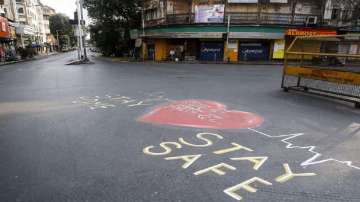Lancet Covid-19 Commission India Task Force has not recommended a blanket national or state lockdown, as opposed to localized, phased restrictions or closures.
Its report said the experience of the past year has shown that economic closures are most disruptive to the poorest sections of the society. In urban areas, daily wage earners, informal sector workers, and low-skill workers are the most likely to be impoverished from disruptions in economic activities.
Yet, experience from other countries has shown that lockdowns do assist in bringing down transmission rates.
A middle ground approach will be needed in India. "We recommend that in areas of high infection rates, the focus is on breaking the chain of transmission through local actions. We recommend that advisories be issued that strongly encourage anyone that can to remain at home (white collar workers, for example, who can work from home) to do so", the report said.
"We also recommend that venues that host large congregations should be closed, and activities that encourage large gatherings should be banned", it added. But restrictions on the movement, or work of the working urban and rural poor should be minimized and locally determined through the creation of micro-containment zones in high case-load areas.
Decisions on local lockdowns or curfews are best left to local authorities, and must be based on localised trends in epidemiological data (transmission, test positivity rates, hospitalization, and mortality rates). These decisions should be made after in-depth consultations with local businesses, community leaders, and workers associations.
More importantly, extra care needs to be taken in terms of testing and vaccinations to ensure that workers are protected and are safe during this current phase of the pandemic, the report said.
Latest India News

